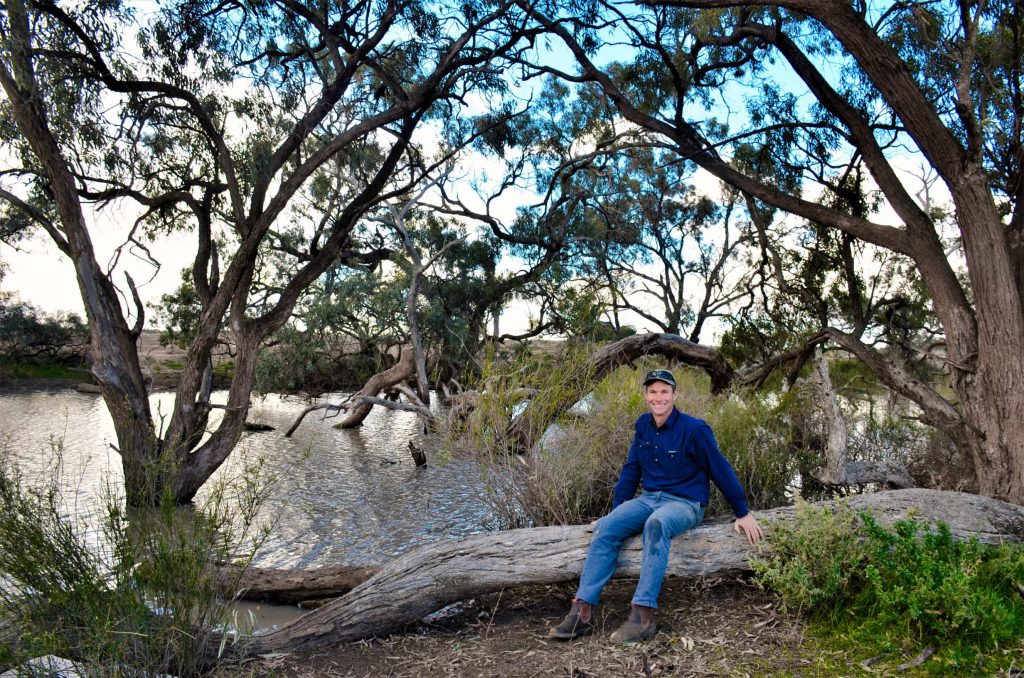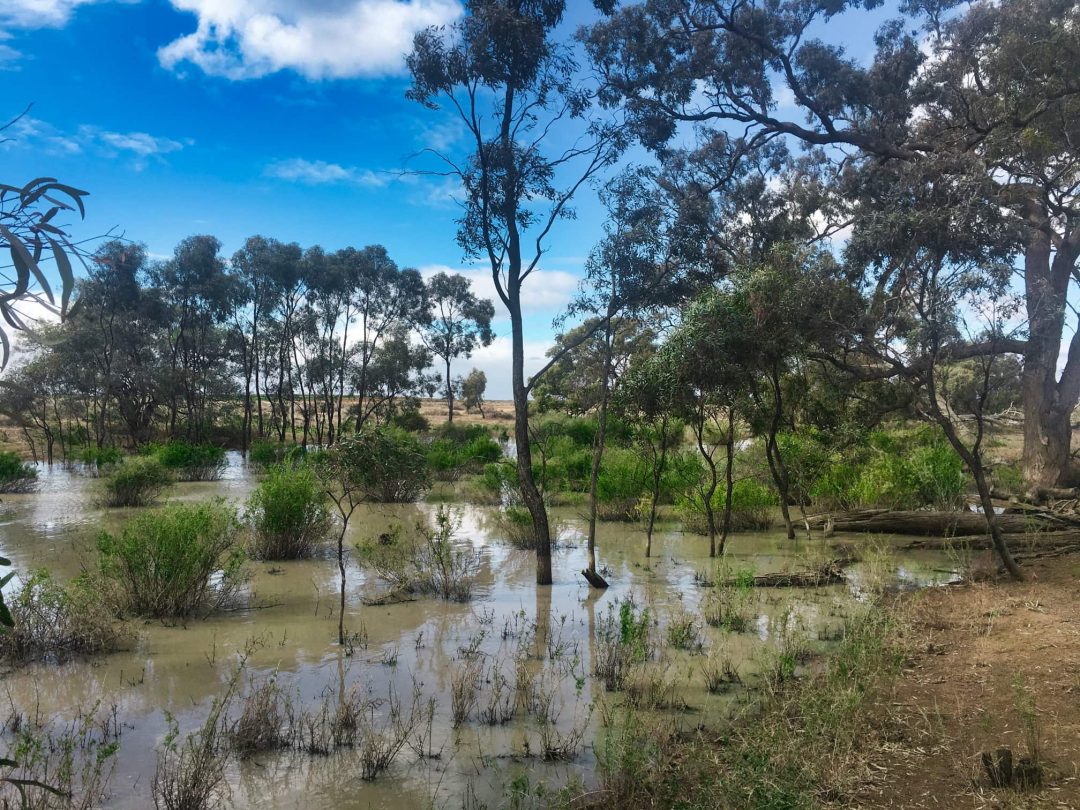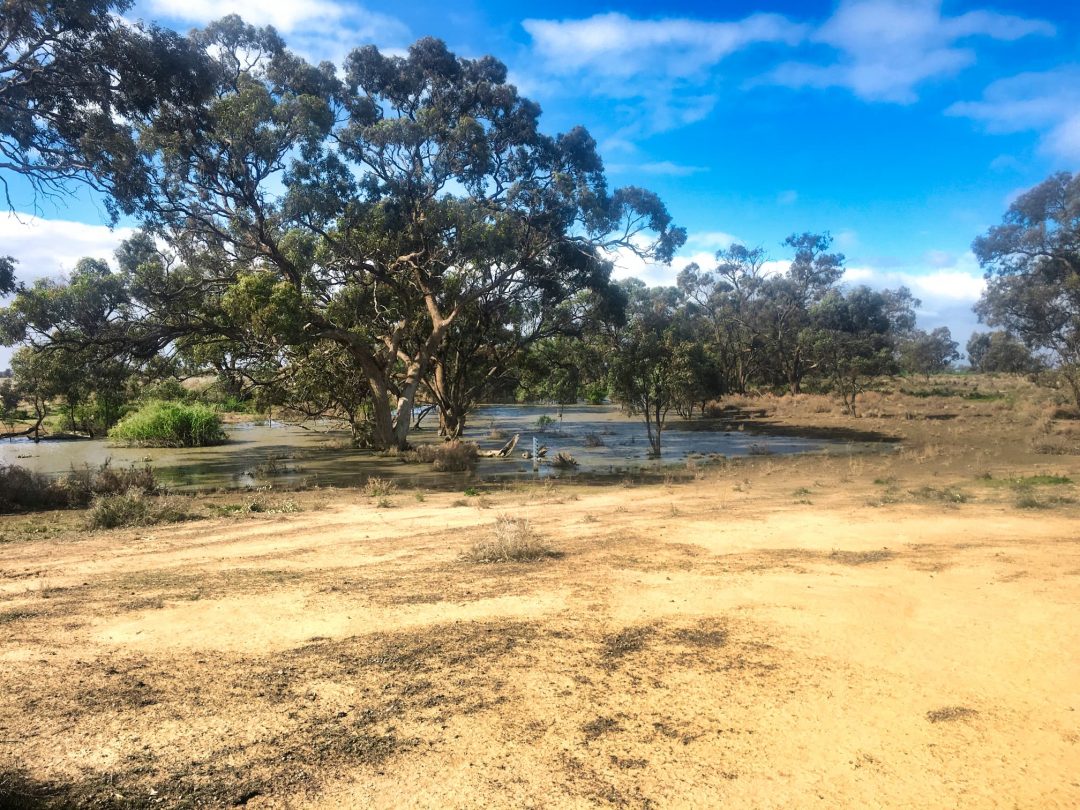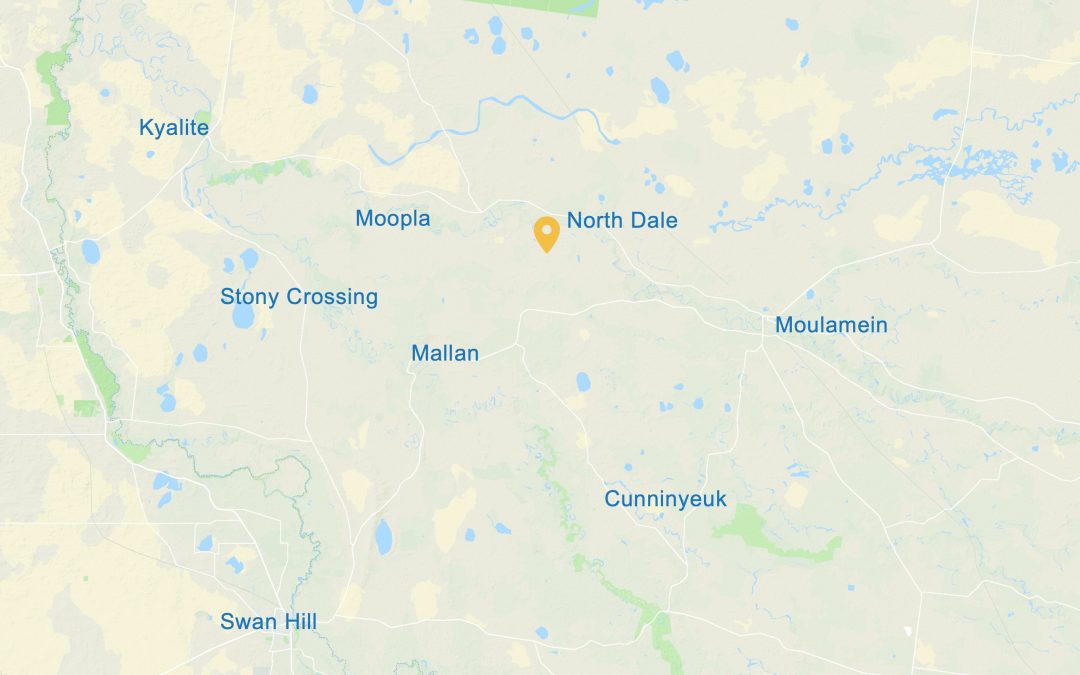Farming for the Future:
How this farming family’s brave new world is reaping big rewards for the environment
In the grips of one of the worst droughts our country has ever seen, meet a farming family who is transforming a wetland corridor spanning
the length of their property near Moulamein southern
New South Wales.
Leigh and Sue Vial, together with their young boys (and the family puppy, Chewbacca), are the caretakers of the thriving wetland. Through strategic partnerships and smarter farming methods they’ve halved water usage across their livestock and food production operation, while restoring the natural landscape.



So how do they do it? With Sue’s environmental science background and Leigh’s second generation farming heritage, their shared love for the
land has given rise to an evolution in farming sustainability.
Precision farming methods, like carefully curated livestock grazing regimes and direct drill tillage, give greater return on land use. And gentler, more sustainable practices create room for environmental conservation projects, such as revegetation.
“I’ve always had a desire to plant trees,” says Leigh, “so we’ve developed a broader revegetation strategy across our farm. We know our soil types, what to plant and when for best results”.
By moving to Sue’s reseeding methods, the family can seed multiple hectares at once, which reduces labour costs and maximises organic recovery and growth.
Partnering with the Office of Environment and Heritage, Leigh and Sue have personally invested into environmental watering of the wetland corridor. This rich, biodiverse oasis creates ideal habitat for natural species to thrive, which in turn helps to sustain food production by mitigating foreign pest invasion – a kind of farming permaculture.
The sense of place and belonging shared by Leigh and Sue is a deeply held sentiment that runs deep through the caretakers of the Murray-Darling Basin. Their connection with the land flows into a genuine care for the natural environment, which they say is not defined by the boundary lines of farming land and national parks.
Like many farming families, Leigh and Sue are living proof that connection with the land goes deeper than making ends meet.
“We’re investing heavily to improve our productivity, both agriculturally and with the local environment,”
says Leigh,
“Productive farming and enhanced habitat go hand in hand – it’s not a zero-sum game.”
Despite cuts to Landcare and declining appreciation for the environment, the family is passionate and optimistic about their efforts. They’re urging both farmers and urban Australia to draw together, to confront misconceptions about farming practice, to think creatively when it comes to solutions for the environment, and support creative and sustainable farming methods for the natural landscape.
Leigh & Sue’s property, North Dale, is in the Western Riverina between Moulamein and Swan Hill

